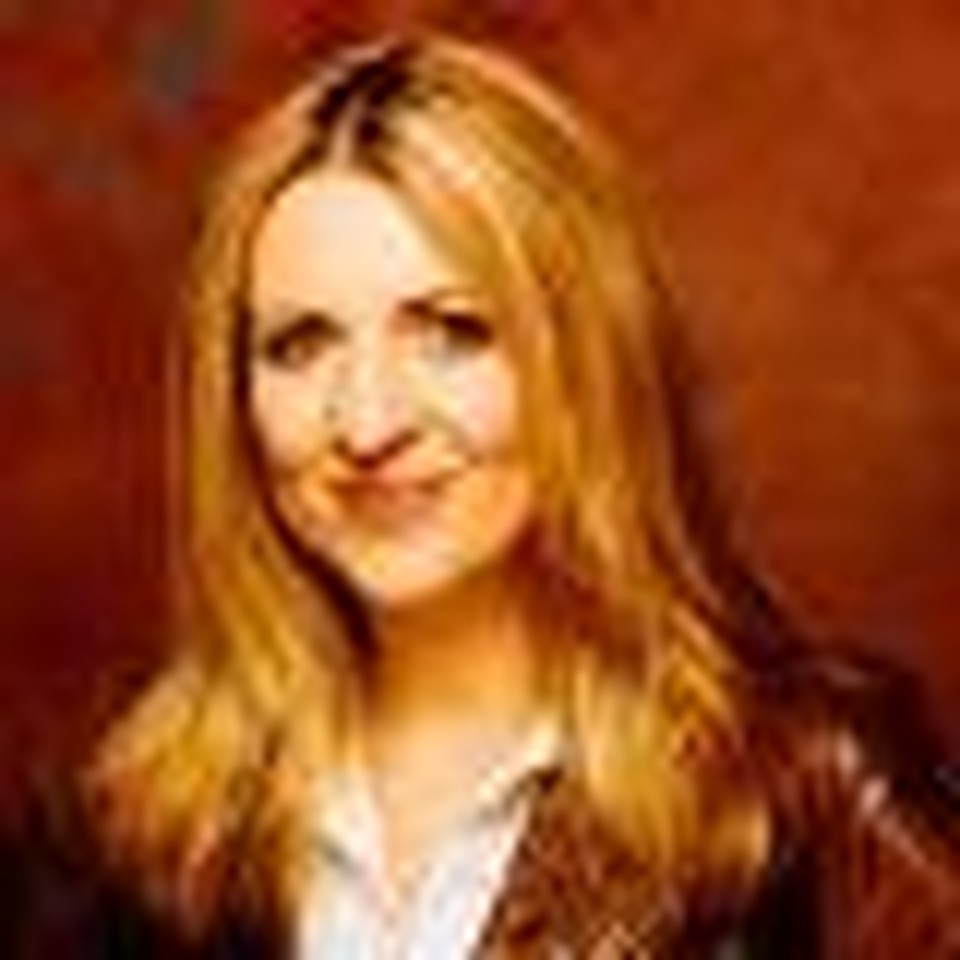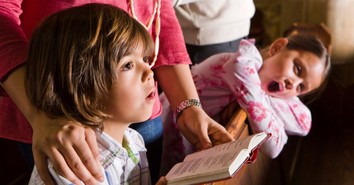10 Questions With: Darlene Zschech

She's been the worship pastor at Hillsong Australia for 18 years and has helmed some of the most popular worship projects ever, not to mention penning the popular worship anthem "Shout to the Lord." But how has Darlene Zschech's success-not to mention her role as a wife and mother and her childhood spent in front of a microphone-impacted the woman and worship leader she is today?
Listen to audio clips from Darlene's solo album Kiss of Heaven at Songs4Worship.com
You've been in the spotlight since you were 10, singing with the best of the best in your native Australia. How did that early emphasis on performance impact the worship work you do now?
Darlene Zschech: It's been really good as far as confidence and even understanding musicianship and harmonies, [but] I grappled with the whole performance issue when I first got saved when I was 15. I stopped singing for a few years because I couldn't stop doing what I was trained to do. Then one day the Holy Spirit just nailed me and said, "you don't need to perform for Me." That thing rears its ugly head every now and again and it has to be put to death. But that's life in Christ, learning how to die so you can live.
You've been the worship pastor at Hillsong Australia for 18 years now. How has your approach to worship leading changed since the early days?
Zschech: It's changed so much. Just in confidence, as far as what you're born to do, I think that takes time to be confident in. Not having to explain everything, not having to prove yourself. Now I know much clearer who I am and that I first and foremost am a worshipper.
How many songs would you say you write each year and how do you fit that in between leading worship, recording and producing?
Zschech: Are we talking good songs? I don't know, maybe 50. Songwriting doesn't really fit; I'm just doing it all the time. I'm working on a song at the moment so it's in me, it's going around, so it's always happening.
What sparks a song idea for you?
Zschech: It probably gets sparked either reading the Word or hearing a message or just hearing a line. Sometimes even just seeing something in the newspaper that would break your heart. It's just something that causes passion and you go, "hey!" It starts there.
You and your husband, Mark, have three daughters. How has being a mom impacted what you do?
Zschech: Oh, it's everything to me. Amy's 14, Chloe's 10 and Zoe just turned two, and they're just divine. What it does is make sure what you're working on is important enough-to your or in their eyes-to be valuable enough to leave them. So it is always that equation.
In addition to writing, singing and recording, you're also doing more producing. How has that come about?
Zschech: I started doing it because the producers we were using would pull out the music, but they couldn't pull out the heart of our church. I would say, "I know that sounds like a great record, but that's not what we're here to make. We're here to make a statement of passion, of people giving their lives away, and this doesn't sound like that." So that's when I started to really get involved in pulling a different kind of music out of worship music. And over the years I've gotten more confident at it and can hear it more easily. Well, actually, I can find it more easily. I could always hear it, I just couldn't find how to pull it out, but now I can find it more easily, and it's something I love to do.
Despite your role as a modern worship pioneer, not everyone in your family is a fan of modern worship, are they?
Zschech: About six months ago, it was my grandfather's 92nd birthday and he's like, "When are you gonna do some nice songs, Dear?" They love [the Hillsong music] because it's got their granddaughter in it, but they've been waiting for me to sing "nice" songs for a long time, something without a beat. So I just went into the studio with a friend and did10 hymns and put them on a CD and sent them up to my pop for his birthday. And now it's like an underground CD because I took it to our seniors group and they all copied it for their friends.
Years from now, what do you most want people to remember about your contribution to the world of worship?
Zschech: I would love to be known as someone who helped put value back into praise & worship. I know I'm one of many, many, many who do this, but I would love to be known as someone who helped.
You are one of many, but you're also one of a handful of women who've reached this level of success. Why do you think that is?
Zschech: I really don't know. It bamboozles me. But I am aware of the responsibility, possibly because I know where I've come from. I'm just like anybody else...and I try to communicate that when I'm leading people, saying, "Hey, if I can do this, you can do this." This is not for the extremely gifted, talented or beautiful. Worship is inclusive [and] I try and make it available to everybody. If I make it too clever or too technically brilliant, it excludes most of the people we're trying to serve.
There's a lot of talk today about where we're veering off course in terms of worship, but what do you think we're doing right?
Zschech: Putting value on it again. I think God must get so excited because it's been his heart always and there were a couple generations where worship was just plundered, we just didn't have it. So I think over the next 10 years we're gonna hear amazing Heaven music that is prophetic as far as cutting edge, not being shaped by the trend, but setting the trend. Because once you tap into Heaven, it must. There will be the new Handel's Messiah, the new works of worship like we've never seen before.
Originally published October 10, 2003.





